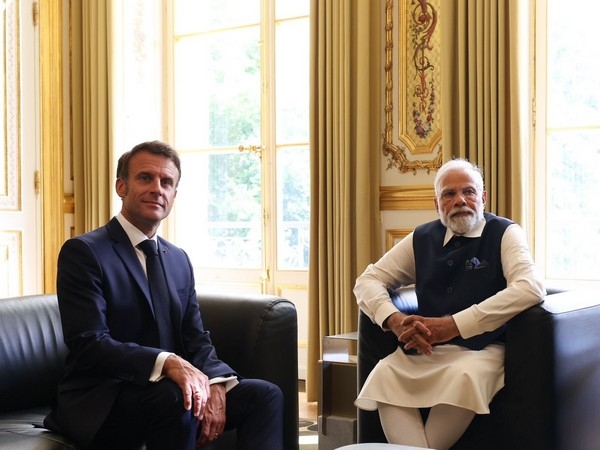
- A vivid visualisation of the years leading up to 1974, when French high-wire artist Philippe Petit walked across the Twin Towers
- The actual act, over the last 30 minutes, is a spell-binding experience
- Joseph Gordon Levitt carries the conventional narrative as Petit
The Walk isn't so much a celebration of a phenomenal event of art as it is a love letter to perhaps the greatest modern American symbol of our times - the Twin Towers.
Robert Zemeckis takes us back to an America still unsure of how to view their latest architectural achievement: Magnificent or utilitarian? Arrogant or necessary?
Unbeknownst to the world, its seven-year long construction coincided with a dream - one that ultimately baptized the landmark and defined its legacy for 28 years, till its sad demise.
Ironically, this dream originated in a dentist's office in Paris. And it culminates mid-air, halfway between the towers, with Beethoven's 'Fur Elise' reiterating how very beautiful shared dreams can be. One August day in 1974, these skyscrapers became more than just two engineered slabs of concrete; they were humanised.
"Because I'm crazy. I'm insane!" screams Philippe Petit (Joseph Gordon Levitt; charms our pants off). His colleagues simply cannot understand why he wants to walk a high wire, half a mile up in the air, without a safety belt, with a 25-kilo balancing rod, between two unfinished skyscrapers, in an alien country - and all this illegally, secretly, without anybody's knowledge. I mean, what's not to get, right? This makes them co-conspirators.
And this is, as he proudly calls it, 'the coup'.
The term's depository nature is precisely why this unauthorised stunt becomes an unparalleled work of art. Its subversive connotations are exactly what will make the world take notice. Perhaps its allure will lie in the power of hindsight, and in the realisation of the episode's illicit nature. During his first reconnaissance visit to New York (his funding is never explained), Petit exits the subway station, prepared to ask for directions.
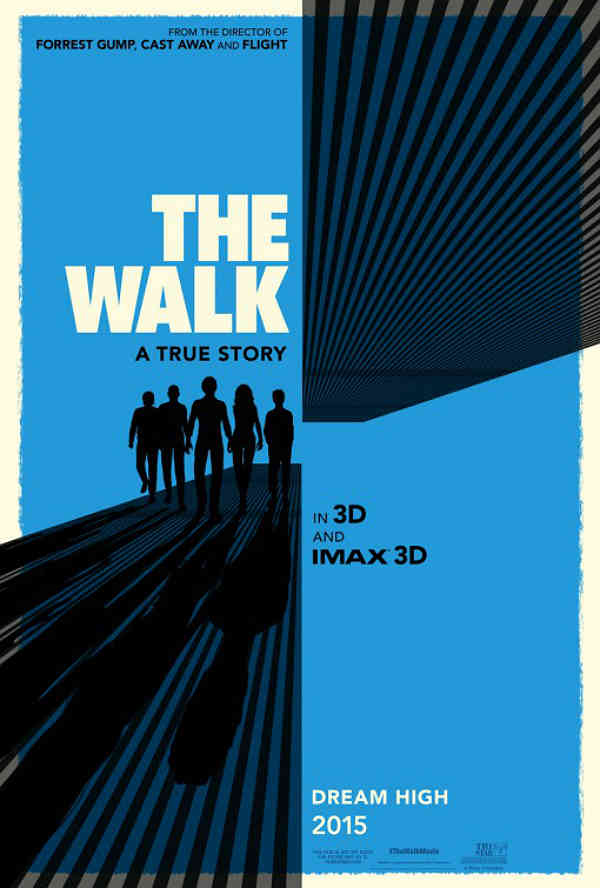
Photo: The Walk film poster
And then he looks upward. There they are; first, the unanticipated revelation takes his breath away. Then it sinks in. He is astonished by the sheer audacity of its size, its soaring ambition. Perhaps these are the stages of emotions he wants unassuming commuters to experience on the morning of the coup; surprise to kick-start their perplexity, before they immerse themselves in the magnitude of his surreptitious achievement.
How else does an artiste explain that the very nature of art demands an elevated state of being - one that is often mistaken for madness? Petit harbours a sustained form of insanity for six years - whose vague blueprints and careful elaborations are swiftly chronicled here.
Much like its Oscar-winning documentary equivalent, Man On Wire, Zemeckis chooses to construct his recreation like a heist film. And it has to be one; Petit, like many artists, derives satisfaction from the fierce independence of his work. Their logistical issues with the wire rigging, spying and setup are no different from those of indie filmmakers planning guerilla shoots. Petit is the conductor of his small crew, but also the producer, planner, designer and therapist.
It's fascinating how much ugliness, sweat and humanness goes into creating a time-transcending moment. And it's imperative that we believe in magic; his look-ma-no-wires act, therefore, is magical because it's actually not.
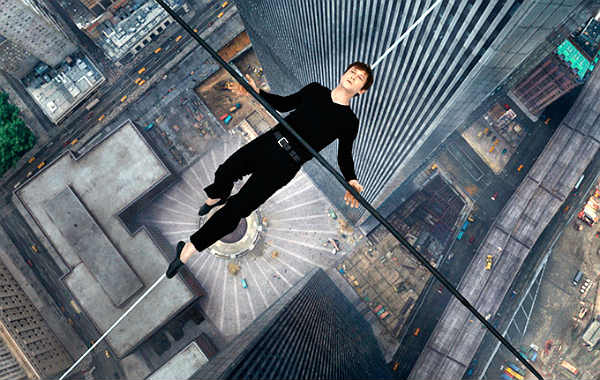
Photo: The Walk film still
However, its Zemeckis' decision to treat this journey like a Forrest Gump-ish biographical adventure that somewhat dilutes its scale. He makes Petit's life look too elegant, what with his fondness for storybook narration and Levitt's chaste French accent. The supporting acts of Petit's precarious life, including mentor Papa Rudi (Ben Kingsley), frantically exist as markers in a retro buildup - too whole to be covered in 124 minutes. Manhattan literally looks like its part of a memory - an American filmmaker's fond vision, his overwrought tribute to his land.
Fortunately for us, these personas and frustrations fade away once the final sequence gets underway. Zemeckis has created two of the most horrifying on-screen plane crashes (Cast Away, Flight); he can now add a third vertigo-inducing dimension-breaking sequence to his repertoire. We're rewarded with a final flourish - of the artiste, and the artists telling his story - one that aims to surprise us, despite the fact that we've imagined it infinitely over. The final walk is poetic for how horrifying it is, and marries life with the fear of death. It is, quite simply, a treat to watch.
I found myself treating my seat as if it were the balancing rod, peering over to look below; my shoulders and feet tightened with each immaculately filmed step.
This is why we go to the movies. In this moment, Petit carries us with him. And he is as humbled, and overwhelmed, as we are. Much like the film, he teases and titillates, and assures us that - it's impossible! And that's why he does it.
First published: 9 October 2015, 3:37 IST



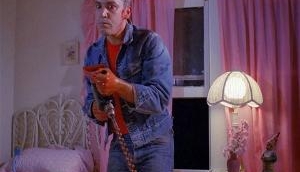
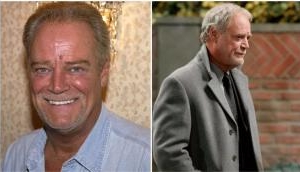


![BJP's Kapil Mishra recreates Shankar Mahadevan’s ‘Breathless’ song to highlight Delhi pollution [WATCH] BJP's Kapil Mishra recreates Shankar Mahadevan’s ‘Breathless’ song to highlight Delhi pollution [WATCH]](https://images.catchnews.com/upload/2022/11/03/kapil-mishra_240884_300x172.png)

![Anupam Kher shares pictures of his toned body on 67th birthday [MUST SEE] Anupam Kher shares pictures of his toned body on 67th birthday [MUST SEE]](https://images.catchnews.com/upload/2022/03/07/Anupam_kher_231145_300x172.jpg)


